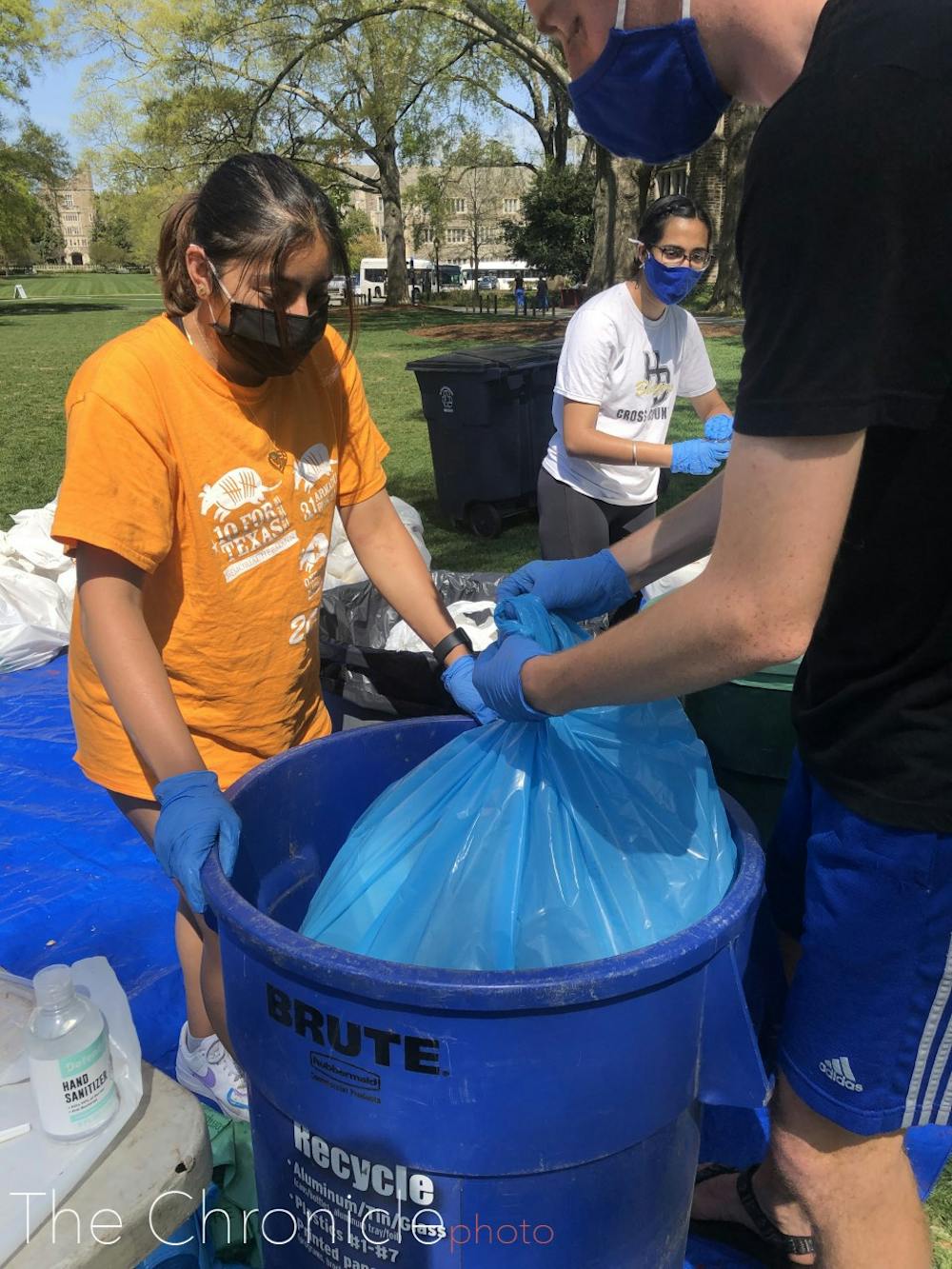Student volunteers got their hands dirty last week during a waste audit coordinated by Duke Student Government and the Environmental Alliance.
During the April 5 event, student volunteers rummaged through large piles of waste taken from the Bryan Center plaza. After picking up a piece of garbage, the volunteers categorized it as trash, recycling or compost and relayed the classification to a data keeper, who punched the label into a spreadsheet.
The volunteers then sorted the refuse into corresponding receptacles. Each stream of waste was weighed and compared to the weight of the original bag.
Sophomore Hailey Ross, a DSG senator of services and sustainability and member of the Environmental Alliance, suggested the waste audit after researching other universities’ sustainability practices.
Ross believes that the audit “will help us quantify the need for increased composting infrastructure on campus, particularly because during COVID we have had a big increase in to-go containers. The time is now to improve that.”
Ross said that one goal of the waste audit is to prove a need for both more convenient composting bins and an educational campaign about composting. Currently, the only location on-campus composting location is the conveyor belt at the Brodhead Center.
“Humans will inevitably produce food waste, and if you don’t give students an accessible way to deal with that, and allow them to divert it from the landfill, then you’re missing a key component that generates carbon emissions, so it’s an oversight in terms of carbon neutrality goals,” Ross said.
Sustainable Duke Director Tavey Capps did not respond in time for publication to an inquiry about campus compost bins.
Ross explained that DSG and the Environmental Alliance chose to conduct the audit in a public space in an attempt to destigmatize the idea of waste.
“No one wants to think about the waste that they produce,” Ross said. “To be a good citizen, you need to be aware of the full process of your consumption.”
First-year Andrew McCallum volunteered to be part of the waste audit because he thought it would be a good way to learn about his own waste habits. He said that he didn’t mind sorting through the trash.
“It’s a beautiful day, and this really goes to show how desperate I am to do any in-person event. I’m having so much fun,” McCallum said at the event.
First-year Rishab Jagetia, a DSG senator and co-host of Environmental Alliance’s podcast Operation Climate, said that being more conscious of waste habits is an easy form of actionable change Duke students can take in reducing the University’s carbon footprint.
“Waste is one of the things where you can actually look at it, and see the impact that humans are having on this planet. We’re species on this planet, yet if you look around, we create mountains of waste that signify our existence. That should tell you in itself that we’re a problem to this planet, and that reducing waste can be a start to something where we actually contribute to a planet that we can live on, but also that everything else can live with us,” Jagetia said.
The results of the audit have not yet been published but will be available on the DSG website and via email in the next few weeks.
Get The Chronicle straight to your inbox
Signup for our weekly newsletter. Cancel at any time.
Pilar Kelly is a Trinity junior and an opinion columnist for The Chronicle's 118th volume.

